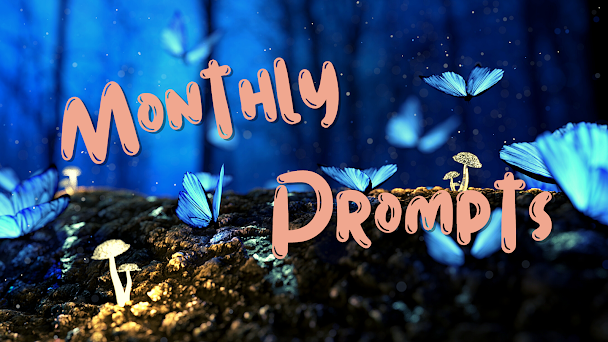Monthly Prompts: Utopia vs. Dystopia
Last month's prompts focused on Creation Stories so this month, we decided to shake things up with a fun topic. The obsession with dystopian stories was a hardcore trend for a while with works like The Hunger Games and Divergent sparking a trend for society.
Utopia vs. Dystopia
What is Utopia? A Utopian society that is happy, idealized, and peaceful. It's a society that everyone dreams could exist. To create a Utopian story, you need compelling characters, high drama, and to remember that even a perfect world still needs a problem to solve. Even if that problem is that the society is too perfect. This is a genre that has a wide history with famous names attached. Examples of utopian fiction include New Atlantis (1627) by Sir Francis Bacon, Republic (310 BC) by Plato, Gulliver's Travels (18th century) by Jonathan Swift, A Modern Utopia (20th century) by HG Wells, and Island (20th century) by Aldous Huxley.
The genre tends to be broken down into the three categories of ecological utopia, feminist utopia, and technological utopia. The categories are self-explanatory with ecological focusing on a world free of climate and natural resource worries, feminist focusing on a world that finally sees women and men fully equal, and technological focusing on a world that has seen advancements in technology beyond what we currently have.
For more, check out this list at Barnes & Noble here.
What is Dystopia? The genre is the exact opposite of the Utopian genre. While a Utopia is a peaceful and perfect world, so a dystopian focuses on the terror and dangerous places that a society can reach. Most of the genre focuses on the effects of politics and social structures when they reach corruptive and deadly levels. Themes that are often explored include anarchism, mass poverty, and oppression. Examples of Dystopian society include The Handmaid's Tale (1985) by Margaret Atwood, The Time Machine (1895) by HG Wells, Animal Farm by George Orwell, and A Clockwork Orange (1962) by Anthology Burgress. Themes you'll find in these books include oppressive patriarchy, the downfalls of a capitalist society, the Russian Revolution, and behaviorism, and extreme violence in youth. Common characteristics include government controls, survival, fighting for individualism, the control of technology, and environmental destruction.
For more, check out this list at Reedsy here.
Your Prompt: Now that we've discussed the differences between the two, the prompt is simple. Choose a utopia or dystopia society then write a story creating your vision of the society.



Comments
Post a Comment